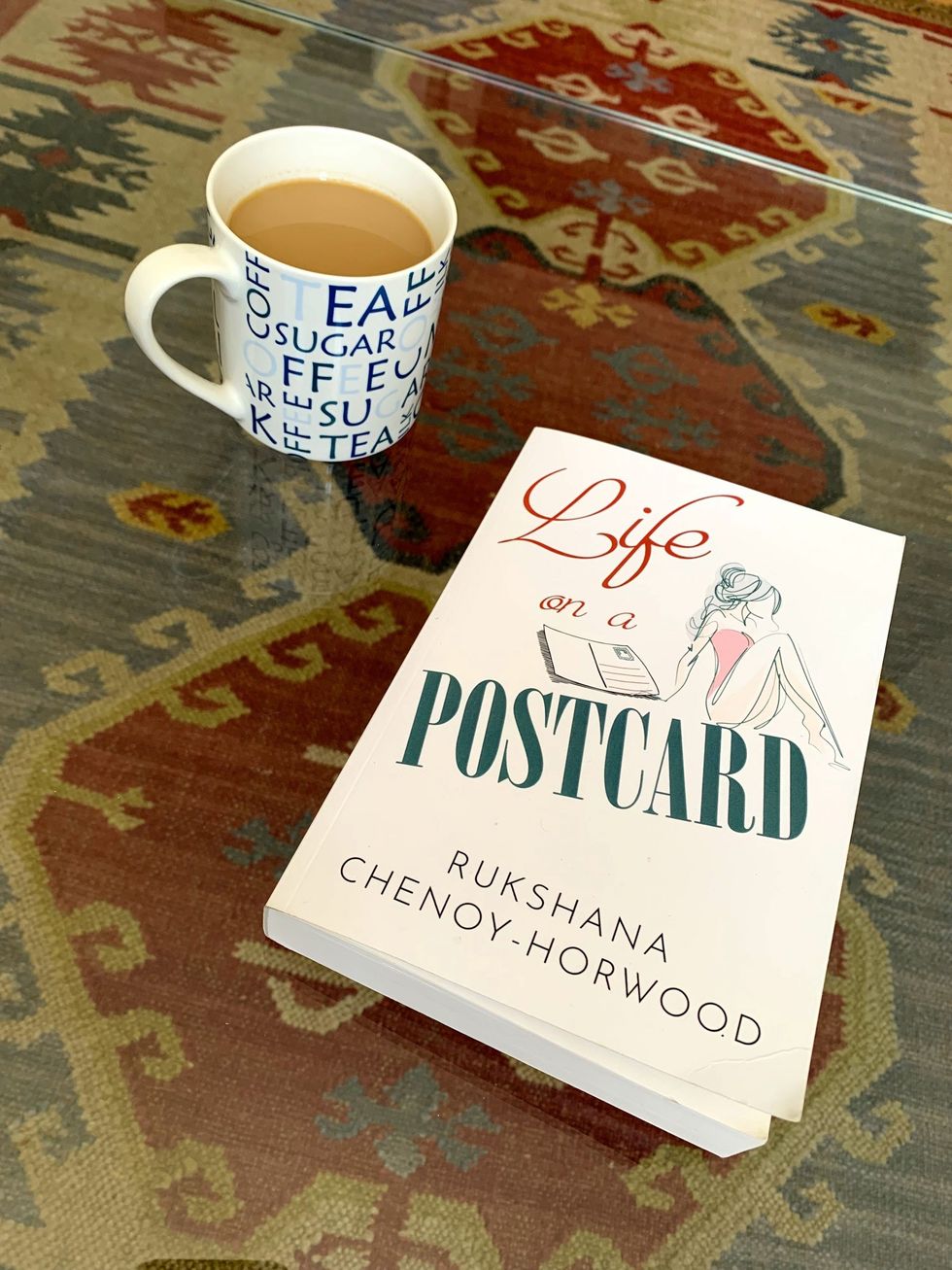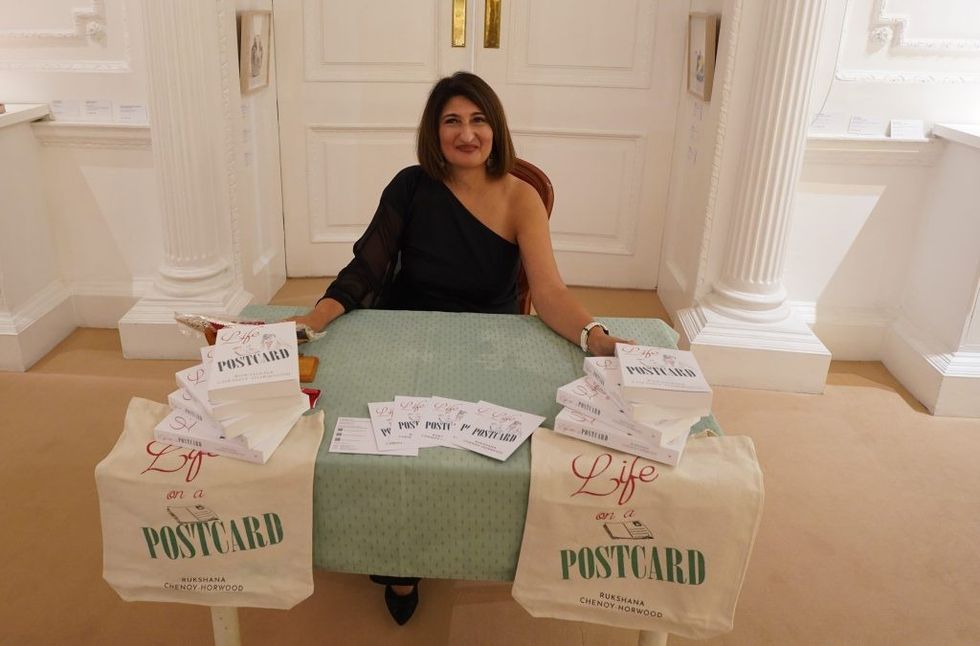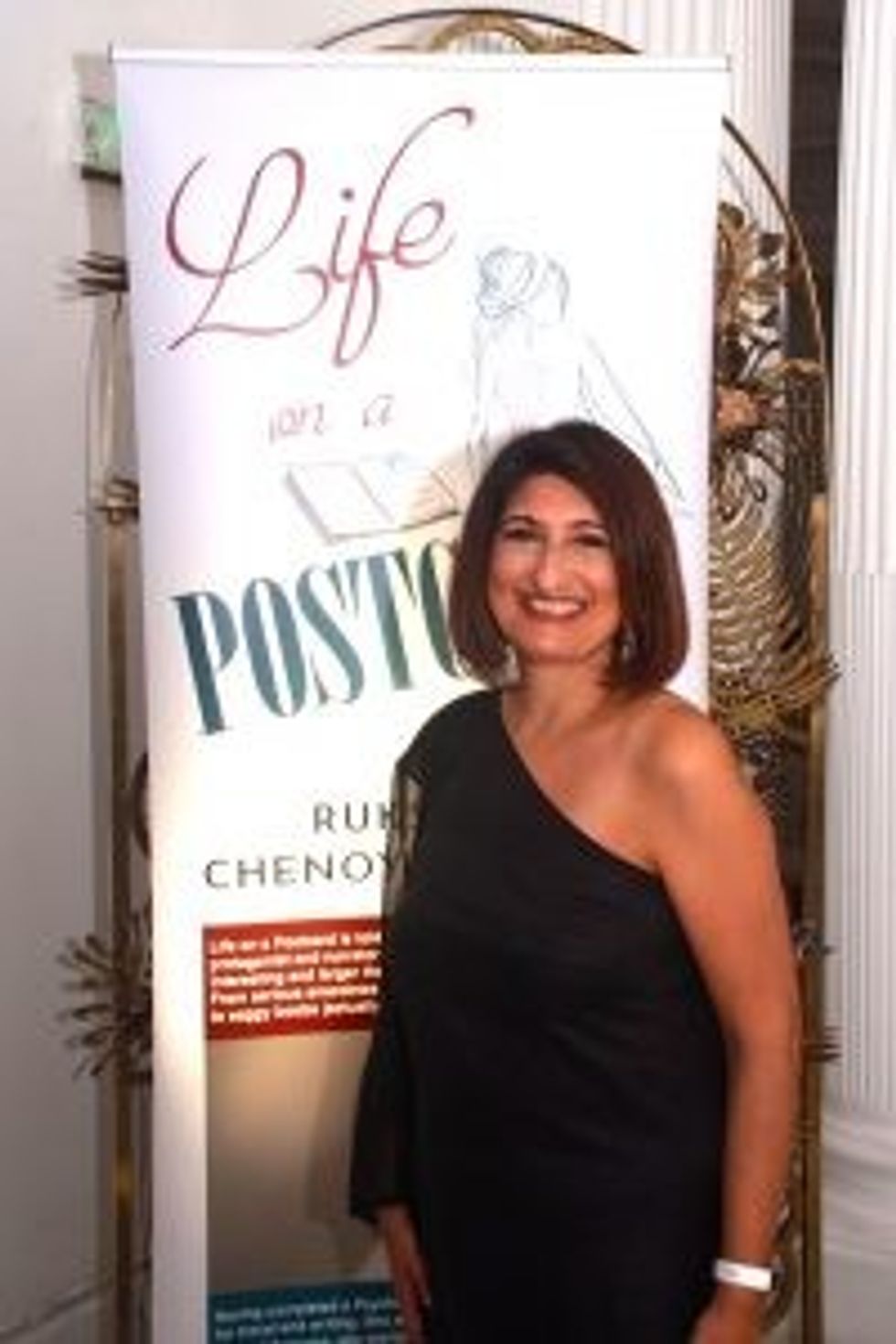A new Asian author, and her first work of fiction of roller-coaster emotions
I don’t like fictional books which use a first-person singular voice. You know, that’s when someone writes a work of fiction through the eyes of one person. “I did this…I did that…For me, it was…” Yuck.
Where’s the fun in that? Why don’t you just write an autobiography?
So, I definitely thought I wasn’t going to enjoy Life on a Postcard by a new British Indian author, Rukshana Chenoy-Horwood.
Not only was it written in first person singular, but it consisted of, wait for it, about 100 anecdotes or postcards written to a mother. Um.
Worse, she was a former ‘dolly trolley’ and then went into the aviation corporate world.
Well, I picked up the book on a Monday morning, and I couldn’t put it down until I’d finished – even skipping lunch and evening meal in the process.
It was simply captivating.
It made me laugh; it made me cry; and above all it made me think. Really think.

Here was this woman who bares almost all in 355 pages of writing which will make you question your attitudes, and your life, and how you’ve probably shared similar experiences.
But what struck me most was the humour. The sense of hilarity which starts of subtley, then has you roaring out aloud…or it did me, anyway.
That quintessential twinkle in the eye, mischievousness, of an author unafraid to speak her mind.
So, who is Rukshana Chenoy-Horwood?
“I was born in the UK, and then my parents moved to India when I was five,” she told me over Zoom.
“So, I went with them, obviously, and then I came back when I was 21, after I'd finished my psychology degree, so my backgrounds in psychology.”
That explains a lot. Chenoy-Horwood gets the human psyche.
“I started many, many years ago in India writing for local newspapers, and I just had a passion for writing humorous stuff,” she explains when I ask where did her love of writing come from?
“I would always see humour and everything, and I think that came from my mom.
“She had a very, very dry sense of humour.
“Unfortunately, my dad has a very saucy seaside postcard sense of humour.
“I'm not gonna give too much away, but as you know, in the book, I talk about where he talks at my wedding.
“That's absolutely true, so he's never been allowed to speak in public again, because he's got a very corny sense of humour.”
Let me explain.
Life on a Postcard is a series of short incidents of one Charlotte Baxter.
We soon understand what makes Charlotte tick…and the scrapes she gets herself in.
For example, as a member of cabin crew for an airline, the inexperienced hostess has to deliver a baby mid-flight, or in another case, she has to administer CPR.
“It's semi-autobiographical, so there are some anecdotes, and then some postcards in there that are absolutely word for word,” explained the author.
“Some of them are embellished, and some are completely made up, so it's been great fun.
“I’m kind of fending off my friends and family who keep ringing me or texting me and saying, is that really true?”
Like many south Asians, the former stewardess is often asked whether she feels torn between India and Britain as her home.
Chenoy-Horwood is adamant that she revels in both identities, and she does not have what many think of as a south Asian immigrant accent – you know, the enunciation racists like to imitate and make fun of.
Like many south Asian immigrants, her command of English is so much better than indigenous folk.
“I'm always thinking in my Indian accent,” she says to my surprise.
And she continues in an Indian accent, “So right now, my thoughts are ‘Oh my God, I've got to be funny in this interview, yeah, because, you know, he's expecting me to be funny, how am I gonna be funny?’
“It's true, I feel half British Asian and half Indian, it's my home.
“People keep kept saying to me, write what you know, and that's what I know.
“I am equally Indian, and I'm equally British, and I don't choose an identity, I don't see why we have to.”
It fuses experiences in India and in the UK corporate world.
For all the wonderful things about Britain, we know that people of colour often face racism.
It is one thing Chenoy-Horwood remains grateful that she has not had to experience it.
“I hear people describe it, but I haven't experienced it, and I don't know whether that was just because I've just been really super lucky.
“If anything, it's kind of gone in my favour.
“For example, I spent 25 years in the corporate world, and I decided to start my own business.
“To be honest with you, I found sometimes it's gone in my favour.
“I don't make any excuses for that, and I don't think there's anything wrong with that, because there are a lot of times when things don't go in your favour.
“For example, I might be chosen to run positive action pathways, programmes for leadership teams because of my ethnicity, and I think that's great, because I can actually share lived experience with them.”
I am not going to give anything away, but some of the episodes will have you in tears.
Like any good author, Chenoy-Horwood, is blessed with a great imagination.
“You have to be a lot more creative when you're an only child,” she explained.
“I see that in my daughter as well, because she's an only child, and we have to be a lot more creative.
“So, I was always creating characters in my mind, and I just have a very vivid imagination.
“I wasn't concerned about being authentic,” continued the novelist.
“I see this with humorous books, I see this with comedians, and what I don't want to do is be insulting.
“I do truly believe you can be humorous without being insulting, and I think far too many comedians and far too many authors try to get a very quick laugh or a laugh from some people by trying by being insulting and that's not what I want to do.”
The book is aimed for readers of all ages – from 15-year-olds like her daughter, and her 84-year-old father.
Expect a second novel in the future, which I hope will be just as much of an emotional rollercoaster as this one.
By the way, in the course of the interview, I realised that two of my favourite novels – Harper Lee’s To Kill a Mockingbird and E.R. Braithwaite’s To Sir With Love – are written as first person singular.
Go figure.
And I suspect that this is new, fresh talent, will be up there with them.
“I often think I'm going to sit down at the laptop, and nothing is going to come, and then it just comes, and I start typing,” she said.
“I don't know where it comes from.
“There are times where I'll wake up at two in the morning, and I always have a notepad and pen by my bed, and I will write down some really funny thoughts.
“When I go running, that's fantastic thinking time for me, reflecting time to get some ideas.
“Then I'll write them, and I'll put them all together.”
Life on a Postcard by Rukshana Chenoy-Horwood is published by Olympia Publishers at £9.99.






